The Madrid College of Psychologists warns that the abusive or excessive use of video games can produce anxiety, irritability and sleep problems.
This addiction to video games is more problematic because of its relationship with gambling and because it mainly affects young people. A growing problem is represented by MMORPG environments, where players gradually isolate themselves from real life and become obsessed with their online activity and shared virtual world.
Possible causes:
According to some studies, some of the causes why people may fall into this addiction are the following:
Family or social problems
Depression
Video games offer senses of reward by completing certain tasks or objectives.
Video games present attractive fantasy scenarios for people seeking to escape their reality.
Existence of almost immediate feedback for actions performed, which makes video games a purely interactive and enjoyable experience for some.
Certain types of video games (the most addictive ones) are organized in levels of gradual difficulty, which makes any person a potential player, since if the necessary time is dedicated depending on the player's skill, one or several levels can be mastered.
The levels and objectives produce the sensation of competition, since it is a reinforcing and intrinsically motivated activity.
Feeling of mastery.
The relationship between skill, difficulty and objectives.
Consequences:
The main consequences of video game addiction are related to personal problems such as:
Disruption of daily temporal organization.
Interference with other activities
Reduction of interpersonal relationships
Family or couple problems and arguments
Decrease in academic or personal performance
Abandonment of other hobbies
Social isolation
Video game addiction has also been associated with other physical ailments or psychological disorders such as:
Depression
Anxiety
Mood swings
Irritability
Sleep disorders
Eating disorders
Dehydration
Constant headaches
Carpal tunnel syndrome
In order to have more control over video games, PEGI provides age ratings for video games in European countries. Age ratings confirm that the game is suitable for players of a certain age. PEGI considers the age suitability of a game, not the level of difficulty. There are two levels of information as a guide: PEGI age labels or content descriptors
What do the PEGI age labels mean?
PEGI 3

The content of PEGI 3-rated games is considered suitable for all age groups. The game must not contain any sounds or images that might frighten children. A very mild form of violence (in a comical context or in a childlike environment) is acceptable. Obscene language should not be heard.
PEGI 7

Game content with scenes or sounds that can frighten young children should be included in this category. Very mild forms of violence (implicit, not detailed or unrealistic) are acceptable for games with a PEGI 7 rating.
PEGI 12

Video games that show slightly more graphic violence against fictional characters or unrealistic violence against human characters would fall into this age category. There may be sexual allusions or attitudes, while any vulgar language in this category should be bland. There may also be gambling games, as they normally take place in real life in casinos or gambling halls (for example, card games that in real life would be played for money).
PEGI 16
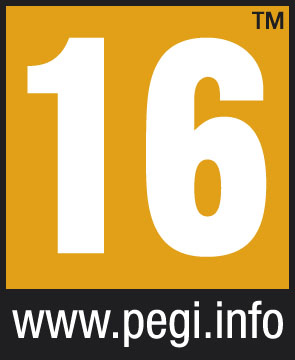
This classification is applied once the description of violence (or sexual activity) reaches a level similar to what one would expect in real life. The use of incorrect language in PEGI 16 rated games may be more extreme, while gambling and the use of tobacco, alcohol or illegal drugs may also be present.
PEGI 18

The classification of adults applies when violence reaches such a level that it becomes a representation of brutal violence, murder for no apparent reason or violence against defenceless characters. The glamorisation of illegal drug use and explicit sexual activity should also be included in this age category.
The PEGI content descriptors
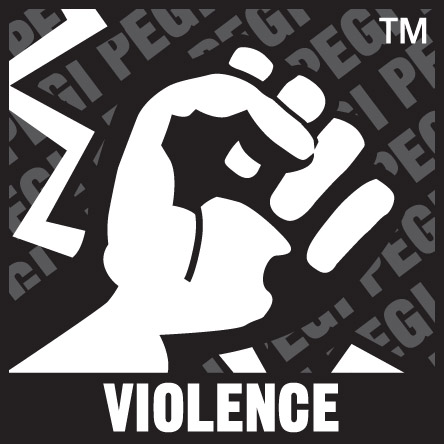
The game contains representations of violence. In games classified as PEGI 7, this can only be unrealistic or non-detailed violence. Games rated PEGI 12 may include violence in a fantasy environment or unrealistic violence against human-type characters, while games rated PEGI 16 or 18 have increasingly realistic violence.
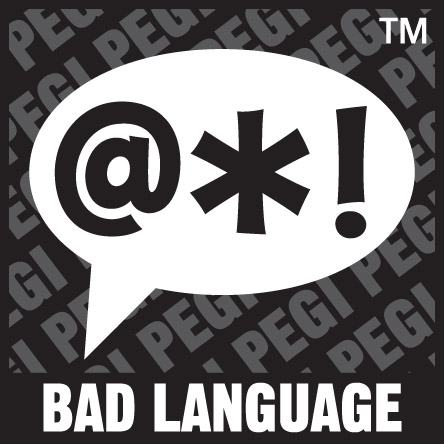
The game contains obscene language. This descriptor can be found in games with PEGI 12 (swearing), PEGI 16 (e.g. sexual insults or swearing) or PEGI 18 (e.g. sexual insults or swearing).

This descriptor may appear in games with PEGI 7 rating if they contain images or sounds that may frighten or frighten young children, or in PEGI 12 games with scary sounds or effects of terror (but no violent content).
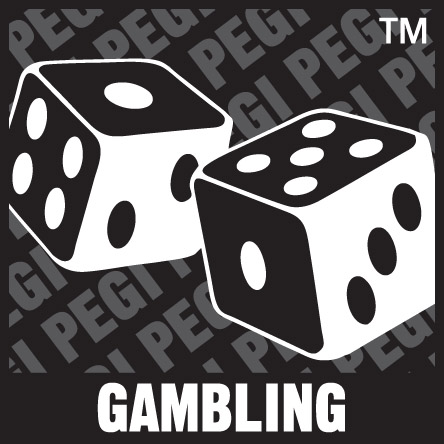
The game contains elements that encourage or teach gambling. These simulated gambling games refer to games that are normally played in casinos or gaming rooms. Games with this type of content are PEGI 12, PEGI 16 or PEGI 18.
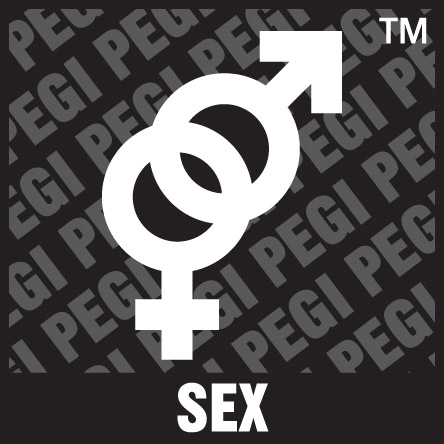
This content descriptor can be combined with a PEGI 12 rating if the game includes sexual poses or allusions, a PEGI 16 rating if there is erotic nudity or sex without visible genitals, or a PEGI 18 rating if there is explicit sexual activity in the game. Representations of nudity in non-sexual content do not require a specific age rating and this descriptor would not be necessary.

The game refers to or describes the use of illegal drugs, alcohol or tobacco. Games with this content descriptor are always PEGI 16 or PEGI 18.
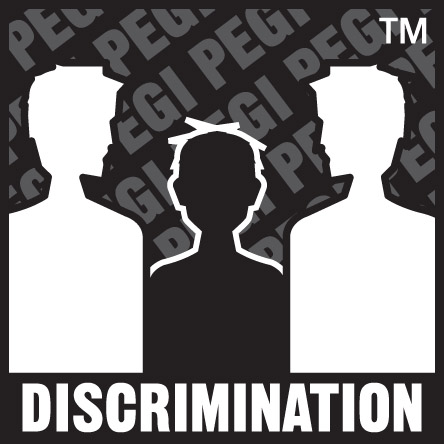
The game contains representations of ethnic, religious, nationalistic or other stereotypes that may encourage hatred. This content is always limited to a PEGI 18 classification (and may violate national criminal laws).



